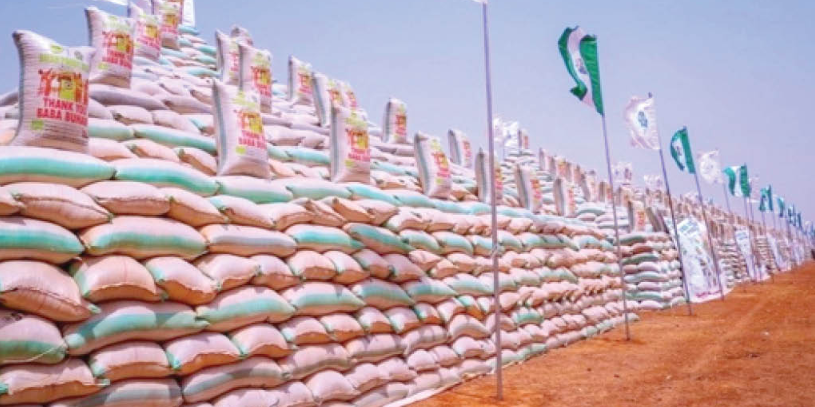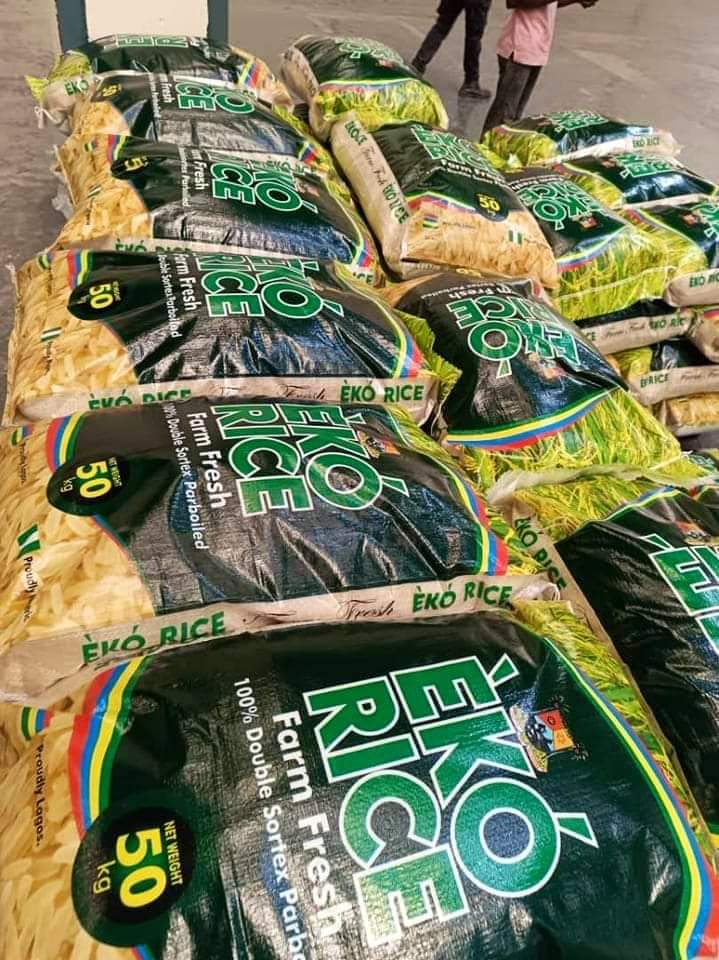What can put the brake on costly Nigerian rice?
Data provided by the National Bureau of Statistics has been able to visualise the steep cost of rice which many households could not afford over the Christmas and New Year holidays.

When the former President of Nigeria, Muhammadu Buhari launched 13 pyramids of rice paddy in January 2022, the goal was to cut reliance on Asian imports when borders were closed and then provide cheaper grain for all Nigerians although many are living in a different reality two years on.
Now, a 50kg bag of rice costs up to N60,000, and that is not the sort of burden that cash-strapped locals want to be contending with entering a new year but that is unfortunately the case.
Through the Anchor Borrowers policy drive of Mr Buhari, farmers were enabled to achieve mass production of rice, Nigerian households were supposed to be able to buy the grain at an affordable rate compared to the imports.
Data provided by the National Bureau of Statistics has been able to visualise the steep cost of the commodity which many people could not afford over the Christmas and New Year holidays. According to the NBS, the average price of 1kg of locally produced rice grew by 73.2 per cent between November 2022 and November 2023. That directly translated to a shift from N500.80 to N867.20.
ALSO READ: How come refilling your cooking gas cylinder has become remarkably pricey of late?
Surprisingly, the price of imported rice attracted a milder cost with the statistics agency noticing an increase of 61.53 per cent – that is – N704.13 to N1,137, over the same timeline.
Inflation, which is also induced by the petrol subsidy removal, has been the key factor attributed to the increases. This is based on the comments given by Kabir Ibrahim, the National President of the All Farmers Association of Nigeria when he spoke with Punch Newspaper in an interview on Wednesday, 3 January.
“The cost of production has always been very high due to various factors. Transportation is a factor and it became a very serious threat to pricing after the removal of the fuel subsidy,” says Mr Ibrahim.
“If you are buying a bowl of milled rice, the miller has to provide its own power, pay workers’ salaries, and discount the cost of his machinery. He has to do packaging alongside transportation costs. So it’s definitely going to be costlier than imported rice that’s not edible in Thailand.”
Although the farmers’ association president sees a bad situation, he thinks that it has not been as bad as the statistics bureau has projected.
Based on his insider knowledge, he thinks that the NBS data might have been exaggerated.
According to Mr Ibrahim, “The bureau may be carrying out this information but I tell you the prices are [a bit] cheaper than what is reported if you go to real markets and not artificial ones. To put things correctly, there is definitely food inflation and it is skyrocketing but if we go by these commodities, we are likely to be lying to ourselves and the general public.”

But the experiences of Nigerians who just breezed past the Christmas break make it difficult to truly grasp what the actual scenario is. The evidence so far certainly points to astronomically high rice being sold in the markets.
In Lagos particularly, even though the southwest state has inaugurated a rice mill which it hopes would improve access to the grain. At the moment, there is a surplus of rice but it is just not having any significant effect in bringing down prices.

Ayodelé is a Lagos-based journalist and the Content and Editorial Coordinator at Meiza. All around the megacity, I am steering diverse lifestyle magazine audiences with ingenious hacks and insights that spur fast, informed decisions in their busy lives.


![So far, NCDMB's Engr. Felix Omashola Ogbe's five months as the Executive Secretary has involved several tours of reassurance to oil companies it wants to help to work better. [NCDMB]](https://meiza.ng/wp-content/uploads/2024/05/So-far-NCDMBs-Engr.-Felix-Omashola-Ogbes-five-months-as-the-Executive-Secretary-has-involved-several-tours-of-reassurance-to-oil-companies-it-wants-to-help-to-work-better.-NCDMB--scaled-e1715609420656-390x220.jpg)


